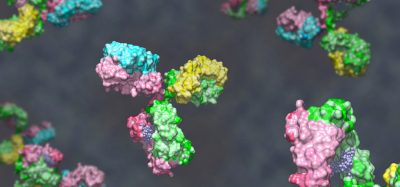Targeted therapy for treatment-resistant breast cancer
Posted: 17 May 2023 | Izzy Wood (Drug Target Review) | No comments yet
US researchers have uncovered a potential target for treating breast cancer that is resistant to endocrine therapies because of a specific gene mutation.

Researchers at Baylor College of Medicine, US, have made significant progress in addressing the challenges of therapy resistance and metastasis in breast cancer. Dr Charles E Foulds and his team have identified a potential actionable target for the treatment of a specific type of breast cancer that is resistant to endocrine therapy due to mutations in the oestrogen receptor alpha (ESR1) gene.
Their findings, published in the journal Cancer Research, offer pre-clinical evidence for a novel approach to combatting this aggressive form of breast cancer. The study focused on breast cancer cases with ESR1 fusion genes, which lead to altered ESR1 fusion proteins. These fusion proteins have a different structure and function compared to the original non-fused protein. The altered proteins render cancer cells resistant to endocrine therapy, as they no longer bind to the drugs used in this treatment, evading their neutralising effects.
To counteract this resistance, the researchers explored therapeutic strategies targeting a specific type of enzyme called kinases. Kinase inhibitors, a class of drugs already approved by the Food and Drug Administration (FDA) for other conditions, were investigated as potential treatment options. To identify the relevant kinases produced by the therapy-resistant breast cancer cells, the researchers developed a new laboratory method called the kinase inhibitor pull-down assay (KIPA). This technique involved coating tiny beads with selective kinase inhibitors and then isolating and identifying the kinases using mass spectrometry.
The team discovered that therapy-resistant breast cancer cells with ESR1 fusion genes naturally produced kinases not present in normal cells, indicating a potential vulnerability that could be targeted. Among the identified candidates, one kinase named RET stood out as being commonly overproduced in various types of endocrine therapy-resistant breast cancers with ESR1 fusion genes. Remarkably, an FDA-approved small molecule inhibitor called pralsetinib, originally developed for lung and thyroid cancer treatment, effectively inhibited the growth of these therapy-resistant breast cancer cells in multiple pre-clinical models.
Dr Xuxu Gou, the first author of the study, emphasised the promising results obtained with pralsetinib, affirming its potential for further clinical evaluation in the treatment of this specific type of breast cancer. Foulds expressed enthusiasm, noting that pralsetinib successfully suppressed the growth of cancer cells both in laboratory cultures and in mouse models implanted with human cancer cells.
The team’s findings provide hope for developing targeted therapies to combat ESR1 variant-driven, endocrine therapy-resistant breast cancer. Further clinical trials will be necessary to assess the efficacy and safety of RET inhibition using pralsetinib in breast cancer patients. This breakthrough represents a significant step forward in the fight against therapy-resistant breast cancer and may ultimately improve outcomes for patients facing this challenging form of the disease.
Related topics
Gene Testing, Genetic Analysis, Oncology, Protein, Protein Expression, Proteogenomics
Related conditions
Breast cancer
Related organisations
Baylor College of Medicine, Food and Drug Administration (FDA)
Related people
Dr Charles E Foulds, Dr Xuxu Gou







